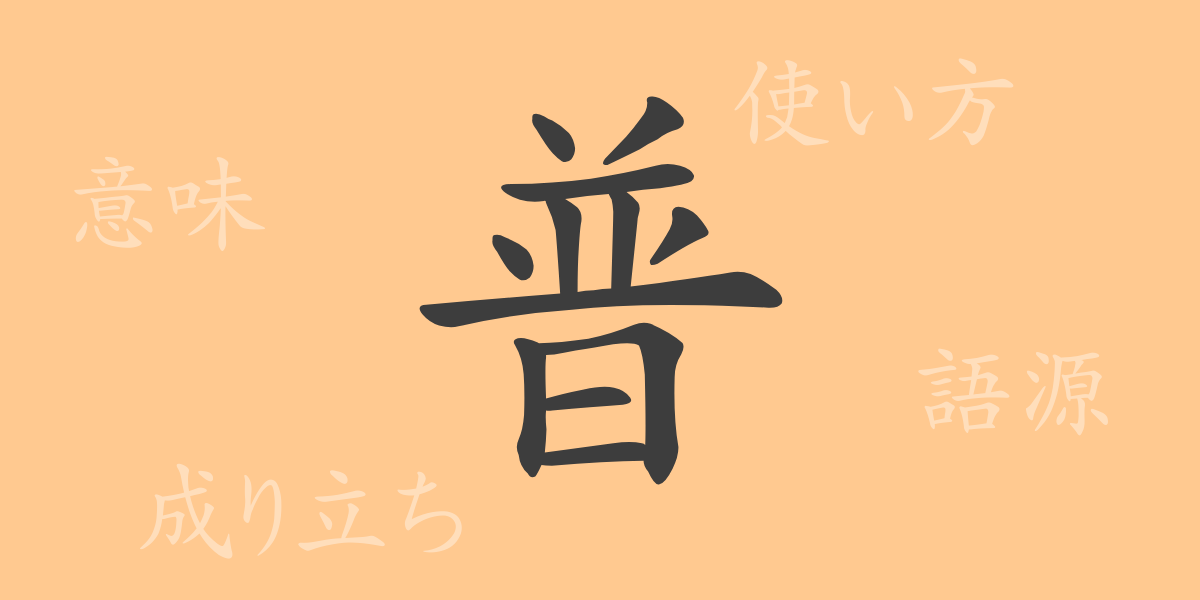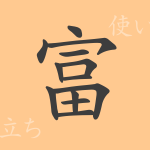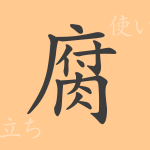The beauty of the Japanese language lies in its complexity and depth. The 常用漢字 (じょうようかんじ, jouyou kanji) “普” (ふ, fu) is one of the characters closely related to our daily lives. In this article, we explore everything about the kanji “普” (ふ, fu) from its historical background to its modern usage, including its readings and radicals. By deeply understanding the origins and meanings of commonly seen characters, you can further appreciate the richness of the language.
The Origin of 普 (ふ, fu)
The kanji “普” (ふ, fu) originates from ancient China. This character is composed of “甫” (ほ, ho), which means “to bend,” and “日” (にち, nichi), which means “light.” Originally, it depicted the widespread dissemination of sunlight on the ground, leading to meanings such as “widely spread” and “universal.” Over time, “普” (ふ, fu) has been used in various contexts, and its usage continues to expand in modern Japanese.
Meaning and Usage of 普 (ふ, fu)
The kanji “普” (ふ, fu) means “general” or “widely spread.” It is often used to express concepts of universality and dissemination. Additionally, it appears in the word “普通” (ふつう, futsuu), which refers to something ordinary, mundane, or usual. In the context of Japanese, besides these meanings, it also appears in various idioms and set phrases.
Readings, Stroke Count, and Radical of 普 (ふ, fu)
The kanji “普” (ふ, fu) has several readings in Japanese.
- Readings: On’yomi (音読み) is “フ” (ふ, fu), and Kun’yomi (訓読み) is “あまねし” (あまねし, amaneshi) and “あまねく” (あまねく, amaneku).
- Stroke Count: “普” (ふ, fu) is composed of 12 strokes.
- Radical: The radical of this kanji is “日” (にち, nichi).
Idioms, Set Phrases, and Proverbs Using 普 (ふ, fu)
There are numerous idioms and set phrases in Japanese that include “普” (ふ, fu). Here are some examples:
- 普遍的 (ふへんてき, fuhenteki): Meaning universal or applicable everywhere, unchanging.
- 普及 (ふきゅう, fukyuu): Meaning widespread dissemination.
- 普通 (ふつう, futsuu): Referring to something ordinary, mundane, or usual.
- 普段 (ふだん, fudan): Meaning usual or everyday state.
These idioms and set phrases play an important role in Japanese communication.
Summary of 普 (ふ, fu)
The kanji “普” (ふ, fu) symbolizes widely disseminated concepts from its origin to modern Japanese. This single character has the power to indicate universality and ordinariness, which is utilized in Japanese idioms and set phrases. Understanding the meanings and usages of “普” (ふ, fu) is highly valuable for deepening your understanding of Japanese. When you encounter words containing “普” (ふ, fu) in your daily life, remember the rich history and meanings behind it.

























